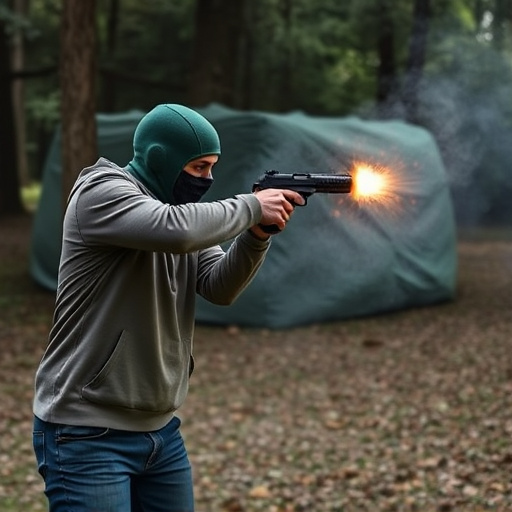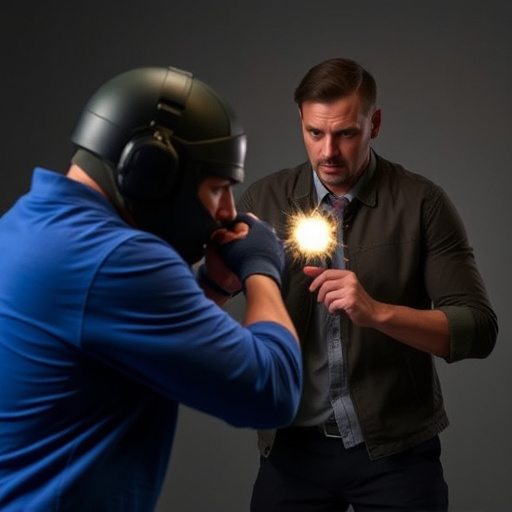Understanding the legal aspects of concealable stun guns is crucial for women seeking personal protection. U.S. state laws vary significantly regarding open or concealed carry, purchase requirements like age and background checks, and restricted carrying locations. Women interested in a concealable stun gun must research their state's specific regulations to ensure compliance, offering peace of mind while prioritizing safety. "Concealable stun guns empower women with a discreet self-defense option," emphasizing responsible use through compliance with local laws.
In today’s world, personal safety is a top priority. For many women seeking empowerment, concealable stun guns offer a layer of protection against potential threats. However, navigating the legal restrictions surrounding stun guns varies greatly by state. This comprehensive guide explores “Understanding Stun Gun Laws: A Comprehensive Overview,” delves into “State-Specific Regulations,” and highlights the unique rights and responsibilities for women considering concealable stun guns.
- Understanding Stun Gun Laws: A Comprehensive Overview
- State-Specific Regulations: Unraveling the Restrictions
- Concealable Stun Guns for Women: Rights and Responsibilities
Understanding Stun Gun Laws: A Comprehensive Overview

Stun guns, also known as electronic control devices (ECDs), are non-lethal weapons designed to temporarily incapacitate a target through electric shock. Understanding the legal landscape surrounding stun guns is crucial, especially for those considering purchasing a concealable stun gun for personal protection, particularly women who may face unique safety concerns. Each state in the U.S. has its own set of regulations regarding the possession and use of stun guns, making it essential to know the local laws before making a purchase.
The legal status of stun guns varies widely across states, with some permitting their open carry, while others restrict them to concealed carry only. Some states have specific requirements for purchasing and owning stun guns, including age restrictions, background checks, and registration. Additionally, there might be rules around where stun guns can be carried, such as in public spaces or near schools, and penalties for violating these laws. Women considering a concealable stun gun for self-defense should thoroughly research their state’s specific regulations to ensure compliance and peace of mind.
State-Specific Regulations: Unraveling the Restrictions

In the United States, the legal landscape surrounding stun guns varies significantly from state to state. When it comes to concealable stun guns designed for women’s personal safety, understanding these regulations is paramount. Some states allow open carry of stun guns without a permit, making them easily accessible. Others have strict rules mandating permits or registration, while some even prohibit the possession of stun guns altogether.
State-specific restrictions can differ based on factors like the power output of the device, its size, and the purpose for which it’s carried. For instance, certain states might allow women to carry small, low-voltage stun guns for self-defense while strictly regulating higher-powered models. Navigating these regulations is crucial for ensuring compliance and peace of mind. Women considering arming themselves with a concealable stun gun should thoroughly research the specific laws in their state to make informed decisions regarding personal safety.
Concealable Stun Guns for Women: Rights and Responsibilities

For women looking to protect themselves, concealable stun guns offer a discreet yet powerful option. In many states, women have the legal right to carry stun devices for self-defense purposes, providing them with an extra layer of safety when walking alone or in potentially dangerous areas. These compact devices can be easily hidden, allowing users to feel more secure without drawing unnecessary attention.
However, it’s important to understand that rights and responsibilities come hand-in-hand. Women carrying concealable stun guns must familiarize themselves with their state’s specific laws regarding open or concealed carry. Some states have strict regulations on the type of devices allowed, the age requirement for ownership, and even the power output permitted. Being aware of these legalities ensures responsible use and avoids any potential issues during an encounter.
In navigating the legal landscape surrounding stun guns, understanding state-specific regulations is paramount, especially when considering the specific needs of women who may require concealable self-defense options. While the legal restrictions vary across states, a comprehensive overview highlights the importance of informed decisions and responsible ownership. For women seeking to protect themselves, concealing a stun gun can offer a layer of security, but it’s crucial to familiarize oneself with local laws to ensure compliance and personal safety.
